




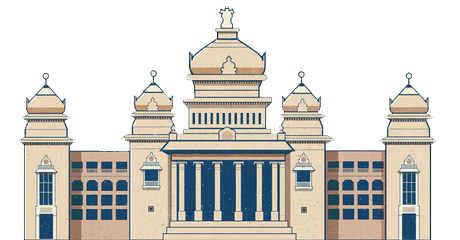
There is a clear consensus that our current healthcare models are not well suited for our future generations, in that they cannot be scaled up in a cost-effective manner for the growing healthcare needs. The key questions facing us are
NetHealth 2015 will adopt a new model to promote directly answering the above three questions, by bringing together leaders from both medical and engineering communities. The aim of the one-day workshop is to promote a deeper dialogue leading to actual collaborations. If you are serious about being part of the solution to one of the biggest challenges facing the mankind in this century, we invite you to participate in NetHealth. NetHealth 2015 will have a three-part agenda
We invite research papers, research demos, product presentations and position papers that present novel ideas for networked computing technology in support of healthcare, and which are likely to invoke thoughtful discussion at the workshop. Both academia and corporate contributions are highly welcome and encouraged. Of interest, though not exclusively, are the following topics:
| Time | Sessions |
|
09:00-09:05 |
Welcome by Chairs |
|
09:05-10:05 |
Keynote Address 1 Prof David Kotz (Computer Science, Dartmouth College) Security and privacy issues in mobile medical applications |
|
10:05-10:30 |
Systematic Information Flow Control in mHealth Systems Chandrika Bhardwaj |
|
10:30-11:00 |
TEA |
|
11:00-12:00 |
Keynote Address 2 Dr Sailesh Mohan (Public Health Foundation of India) Leveraging Technology to Improve Chronic Disease Prevention and Control |
|
12:05-12:30 |
A Smartphone-based Algorithm to Measure and Model Quantity of Sleep Alvika Gautam, Vinayak Naik, Archie Gupta and S.K. Sharma |
|
12:30-13:00 |
Internet-enabled Skills Training Platform for Neurosurgical Training Vinkle Srivastav, Natesan Damodaran |
|
13:00-14:00 |
LUNCH |
|
14:00-15:00 |
Invited Talk Prof Ashish Suri (Neurology, AIIMS New Delhi) Challenges in Development of Networked Health Care: A Neuro-Technology Perspective |
|
15:05-15:30 |
A Pub/Sub based Architecture to Support Public Healthcare Data Exchange Rakshit Wadhwa, Apurv Mehra, Pushpendra Singh and Meenu Singh |
|
15:30-15:55 |
An EMR-Enabled Medical Sensor Data Collection Framework Rakshit Wadhwa, Pushpendra Singh, Meenu Singh and Saurabh Kumar |
|
16:00-16:30 |
TEA |
|
16:30-17:20 |
Invited Talk Dr Shalini Singh (Indian Council for Medical Research) Harnessing technology for promoting outreach of 'known' interventions for betterment of health |
|
17:20-18:00 |
Discussions and Concluding Remarks |
The NetHealth workshop solicits paper submissions of up to 6 pages in length, including all figures, tables, and references. All papers must be electronically submitted via the NetHealth submission site on EasyChair (Submit Papers to "NetHealth Workshop 2015 - Papers Only") in PDF. The proceedings will be published by IEEE Xplore and will include the final papers of up to 6 pages in length. All NetHealth technical papers must be associated with an author registration at the full rate. For authors presenting multiple papers, one full registration is valid for up to three papers. IEEE reserves the right to exclude a paper from distribution after the workshop (e.g., removal from IEEE Xplore) if the paper is not presented at the workshop.
Overall appearance: Submitted papers should adhere to the appearance of the standard IEEE twocolumn format that is used for IEEE Transactions.
Margins: Papers must use a 10pt font on US Letter paper with margins no smaller than 0.75in for the top margin, 1.0in for the bottom margin, and 0.625in for side margins.
Templates: Depending on whether you are using LaTeX or Microsoft Word for formatting your paper, you can download the relevant templates that incorporate the formatting specifications at http://www.ieee.org/conferences_events/conferences/publishing/templates.html
EasyChair URL: https://easychair.org/conferences/?conf=nethealth2015
Note: All Workshop papers (full papers - both regular and invited) WILL appear in IEEE Xplore.
In addition, NetHealth 2015 will feature a demo session on the day of the workshop to allow industry and academic researchers to showcase their latest applications and prototypes in all related topics. Demo proposals are invited for both mature or innovative systems and prototypes developed for commercial use or for research purposes, from industries or universities. The submitted demo proposal should include all relevant technical content in a maximum of 2 pages in double column format. The demo proposals can be submitted on EasyChair ("NetHealth Workshop 2015 - Demos Only") or simply emailed to Prof. Sanjiva Prasad (sanjiva@cse.iitd.ac.in).
Each paper acceptance is subject to the conditions that the paper does not contain any plagiarized material and that the authors do not submit the paper material in parallel to another publication venue. Violations of these conditions will most likely result in rejections of the violating submissions or even already accepted papers.
| Paper Submission | |
| Notification of Acceptance | November 21, 2014 |
| Camera Ready Submission: | To be announced |
| Demos Submission | December 12, 2014 |
| Workshop Date | January 10, 2015 |
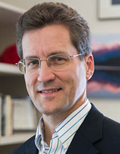
Dartmouth College, USA
Title:
Security and privacy issues in mobile medical applications
Abstract:
Mobile medical applications offer tremendous opportunities to improve quality and access to care, reduce cost, and improve individual wellness and public health. These new technologies, whether in the form of software for smartphones as specialized devices to be worn, carried, or applied as needed, may also pose risks if they are not designed or configured with security and privacy in mind. For example, a patient's insulin pump may accept dosage instructions from unauthorized smartphones running a spoofed application; another patient's fertility-tracking app may be probing the Bluetooth network for its associated device, exposing her use of this app to nearby strangers. In this talk I present an overview of the security and privacy challenges posed by mobile medical applications, including important open issues that require further research and a brief review of the related legal policies.
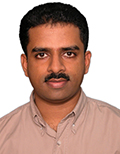
Public Health Foundation of India
Title:
Leveraging Technology to Improve Chronic Disease Prevention and Control
Abstract:
Chronic non-communicable diseases (NCDs) such as such as cardiovascular disease (CVD), diabetes, cancer and chronic obstructive pulmonary disease (COPD) are increasing rapidly across India. They entail not only health but substantive social, economic and developmental consequences. Despite availability of proven and effective prevention and treatment strategies, the rate of detection and control are abysmally low. There is thus the need to look at innovative strategies to bridge the "know - do gap" with respect to detection, prevention and management. The use of m-health technologies provides such a potential alternative. The presentation will highlight the use of select m-health strategies to improve the prevention and control of the major NCDs in India.
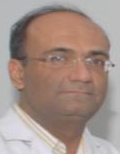
Neurosurgery, AIIMS New Delhi
Title:
Challenges in Development of Networked Health Care: A Neuro-Technology Perspective
Abstract:
Health care around the globe has been revolutionized by technological advancements. The quality of life and life expectancy has greatly improved across all nations including developing nations. Networking of health care has the potential of taking the treatment to the corners of the country. The major challenges are large population, poor literacy and financial conditions inhibiting the peripheral reach. Recognition of the training and research as vital aspect of health care is a major challenge along with patient treatment; thereby creating their network would advance health care.
Neurotechnology is a rapid growing inter-disciplinary field, which brings technology to the field of neurological sciences that cares for very sick population suffering from head injuries, brain tumors, stroke, central nervous system infections and seizures. We have tried providing neurosurgical education and skills training over the web technology and educational network across our nation.
The challenges of the networked healthcare range from the storage of videos from surgeries and skills training sessions to secured data transfer of patient data for technological evaluation. The acquisition of data from different equipment like endoscopes, microscopes, IP cameras from the medical institution and sending it to the technological counterpart for evaluation is a challenge in this area. The networked healthcare can provide transfer of 3D animations, 3D recorded data from 3D endoscopes, microscopes, IP cameras for real-time transfer to remote locations for education. The cost-efficient encoding and decoding of 3D videos and 3D volumetric data from MRI, CT, laser scanners are road blockers for web-based e-learning and simulation platforms.
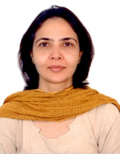
Indian Council for Medical Research
Title:
Harnessing technology for promoting outreach of 'known' interventions for betterment of health
Abstract:
Penetration of information and communication technology (ICT) among the health sector is increasing steadily and unleashing its vast potential in all spheres of healthcare such as disease prevention, promoting health, treatment and rehabilitation. The focus of the talk will be on strategies to improve penetration of 'known' interventions among health professionals working at all levels of health care including primary, secondary and tertiary; increasing participation of support staff in health care to improve delivery of care; and involve community and individuals to improve access to health care. There is a need for collation of data generated at a health facility to be processed uniformly using simple technology to inform programme managers and policy makers periodically.
Further ICMR's initiatives in promoting innovation and translational research will be highlighted and the unmet need in the area of communication technology in health research will be discussed.
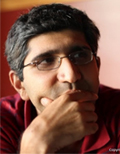
IBM India Research Labs
| Name | Affiliation | Country |
|---|---|---|
| Pushpendra Singh | IIIT Delhi | India |
| Amit Acharyya | IIT Hyderabad | India |